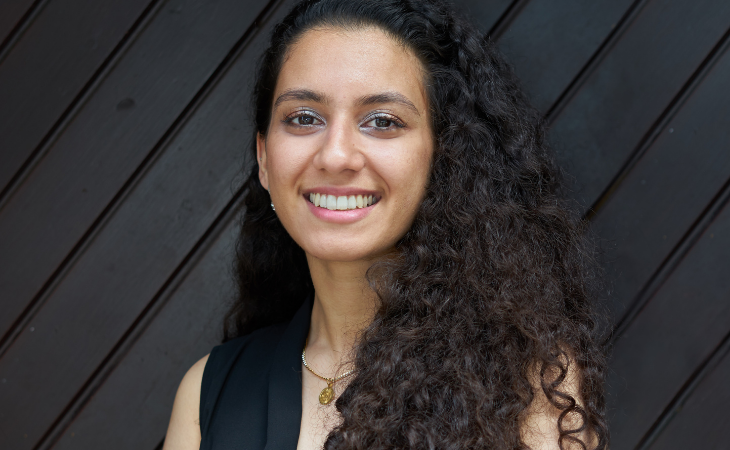Becoming: Aishwarya's journey to Leadership
In this blog, Aishwarya Tiku, a student at the University of the West of Scotland shares her experiences growing up in Zambia and becoming a leader. She is the first female student of Black Minority Ethnic background appointed to the role of Vice President Education at the university.

“I am definitely proud of myself for using my network to be the first female student of a Black Minority Ethnic (BME) background, to be in this position” asserts Aishwarya Tiku.
The theme for this year’s International Women’s Day is Women in Leadership: Achieving an equal future in a COVID-19 world. Not surprisingly, everyone has their own idea of what leadership is. For Aishwarya Tiku, she describes it as being able to empower others to lead and be influential, which requires her to constantly develop her own communication skills and confidence.
“Leadership for me, is being able to use one’s skills, abilities, passion and determination, to be able to make a change, regardless of their background and limitations.”
From Aishwarya’s perspective, these skills needed in leadership aren’t set in stone but can be developed overtime as people learn and grow. For young women like Aishwarya, these skills are taught in the home, and will go a long way in paving the education/career path for women like her. In her case for example, as a young girl growing up in Zambia, she was encouraged by her parents to explore multiple interests by attending various school events, unlike some of her female peers who were encouraged to focus only on schoolwork and house chores.
“That has enabled my leadership mindset as I was never told or taught that I was inferior to anyone else and it’s that sense of equality that was enshrined at home.”
In more traditional settings where from an early age, women are expected to assume domestic roles as mothers, wives and daughters, it can be difficult for any young woman who may choose to steer away from that path. For Aishwarya, she describes the external pressure she faced when she made the decision to study abroad in the UK.
“It took many years, and I had to be in constant communication with my family as what I had done to travel abroad for my education, was outside of our norm … the pressure that came from my extended family of no, you cannot send her abroad; no, just keep her here; stay close to home”
What then is the fate of those young women who may be unable to withstand this external pressure, thereby failing to pursue their further education? The way Aishwarya sees it, there’s only so much a school can do when it comes to culture and society with norms spanning centuries.
Fortunately, having a mentor can sometimes make all the difference. This is someone keen on your personal development and who is willing to guide you on your education/career path.
"Apart from mentorship, having a solid network/support system also plays a significant role in developing a young woman’s confidence/ leadership skills."
Aishwarya attributes her appointment as the first female student of Black Minority Ethnic background to the role of Vice President Education in her university’s 100+ year history, to her strong and supportive network of family, teachers and mentors.
This interview is part of our series of interviews with female leaders in education for International Women’s Day 2021.
Find out more about ESSA’s work using evidence to improve female leadership in education here.